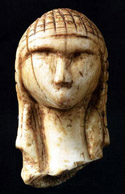Anthropology, Department of

Department of Anthropology: Faculty Publications
Document Type
Article
Date of this Version
9-2011
Citation
Published in Human Nature 22:3 (September 2011), pp. 223–224; doi: 10.1007/s12110-011-9106-8
Abstract
We feel it is important to explain to the readership of Human Nature why we decided to break with our tradition of publishing only those papers based on evolutionary approaches to human behavior that are highly empirical in terms of substantive testing of theoretical predictions with data. Our decision to publish an investigation of the conduct of a professional society needs to be explained to those who are not aware of the history that lies behind it. Although the readers of Human Nature come from a wide variety of disciplines, a solid core of both readers and Consulting Editors identify themselves as Evolutionary Anthropologists or Human Evolutionary Ecologists, do research in nonindustrialized societies, and practice scientific methodology. This is the group that was most damaged in reputation and status by the original publication in 2001 of Darkness in El Dorado by Patrick Tierney (New York: W. W. Norton) and, that same year, by the President and Executive Board of the American Anthropological Association, who launched an unstructured investigation into accusations of scientifically motivated genocide against James Neel, a geneticist, and Napoleon Chagnon, an anthropologist.


Comments
Copyright © 2011 Springer Science + Business Media, LLC. Used by permission.